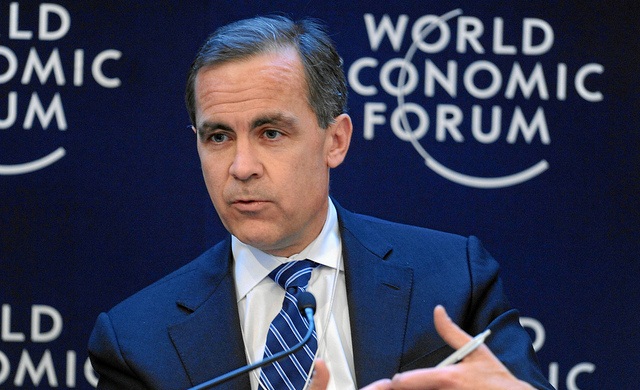Mick Carney, the next Governor of the Bank of England, has suggested that targeting economic output instead of inflation should be the method in an attempt to revive a weak economy. Considering nominal gross domestic product (GDP not adjusted by inflation) would allow central banks to act more aggressively to counter an economic slump.

“If yet further stimulus were required” said the current Governor of the Bank of Canada in his first speech after been appointed the successor of Mervyn King, “the policy framework itself would likely have to be changed. For example, adopting a nominal GDP level target could in many respects be more powerful than employing thresholds under flexible inflation targeting.”
At the moment, the Bank’s job is to aim for an inflation target of 2%. This has represented one of the key planks of economic orthodoxy around the world for decades, especially taken into the account by the current BoE Governor Mervyn King. Nevertheless, prices in the UK has risen at a faster pace since 2009.
Even if Carney said that his opinions did not intend to signal the new policies that the Bank of England will adopt – to which he will be in charge from next June – many commentators saw in his speech a firm intention to change the current situation. The Governor of the Bank of Canada suggested other measures to keep interest rates on hold for an extended period of time and has numerical targets for unemployment. A central bank, he said, should make it clear how high inflation or unemployment would have to go before increasing interest rates.
“The new Governor” said Andrew Clare, professor of Asset Management at the Cass Business School, to ADVFN Financial News “wanted to scrap any dogma about inflation target, but it doesn’t mean he is going to change it. The inflation we have now in the UK derives from energy and food prices: the cut of interest rates doesn’t really help, as well as quantitative easing. Carney will find himself quite impotent in front of the current situation.”
The Bank of England, however, cannot shift from its inflation target as the decision rests with George Osborne, and by the Monetary Policy Committee’s other eight members.
IN CANADA
Under Carney’s regime, the Bank of Canada was the first central bank in the Group of Seven leading economies to commit publicly to keeping rates low for an extended period – a policy later imitated by the US Federal Reserve. Introduced in April 2009, the policy worked because “it was exceptional and anchored in a highly credible inflation-targeting framework.”, said Mr Carney.
The BoC, however, was also the first in the G7 to raise rates, since Canada’s economy, that relies on natural resource exports performed very well.
WHO IS HE?
Canadians are not very foreign and Mr Carney, with his English wife and connections, is even less than most of his compatriots. With three degrees in economics – the first from Harvard, with a masters and doctorate from Oxford University. Combine this with 13 years at Goldman Sachs and a long reign as the Governor of the Bank of Canada (since 2008), Carney is one of the most respected central bankers in the world.
Famous for his strong argument with JP Morgan boss Jamie Dimon, another frightful character, he gained credit for the robust performance of the Canadian economy during the financial crisis. Canada’s banks, in fact, avoided going down the route of many developed countries, keeping higher stocks of good quality assets partly thanks to a tighter grip on regulation. Regarding “too big to fail” banks, Carney once said the Occupy anti-capitalist protesters were engaged in a “democratic expression of views” and were “entirely constructive”.


 Hot Features
Hot Features













